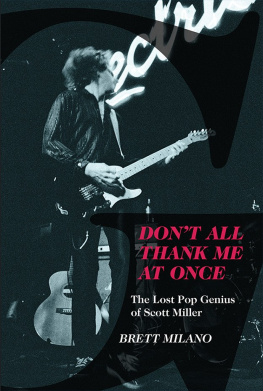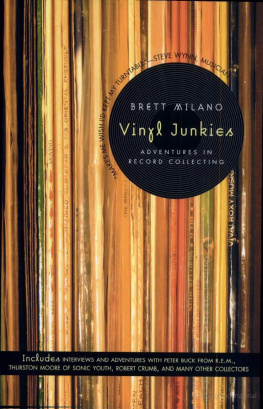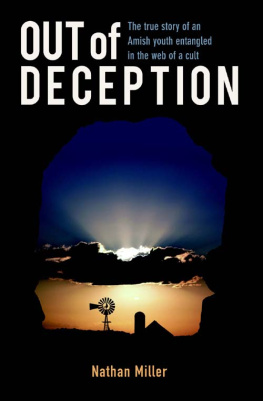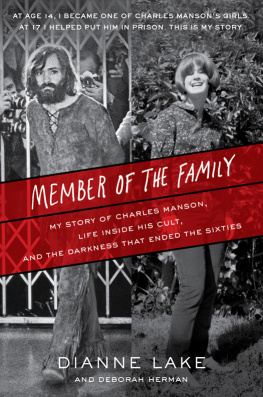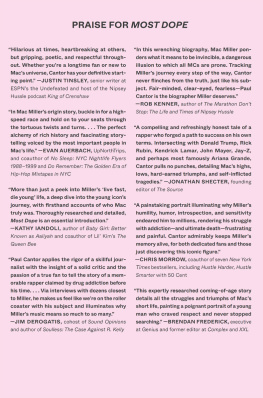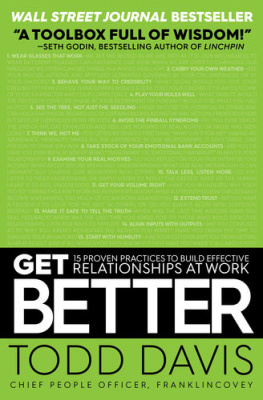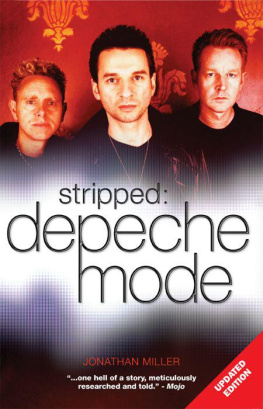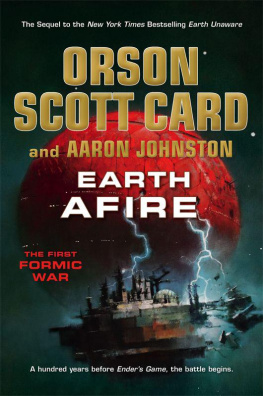Ill get the hardest sentence in this book out of the way first: Scott Warren Miller, unsung master songwriter, chose to end his life on April 15, 2013.
The news made even less sense than this kind of news normally does. As far as any of his fans knew, Scott was content, maybe even fulfilled. Yes, hed stopped leading bands in 2001, but that seemed to bother his fans more than it did him. (I was one of a few to ask him about it, and he swore he wasnt missing playing in a band.) And he wasnt unproductive in the years since: hed written a book, made a few impromptu live appearances, even done a low-key album with a friend. And hed kept in touch with the fans, writing his Ask Scott column on his now-defunct band the Loud Familys website. His responses, as always, were full of self-deprecating wit and deep appreciation for the fans. He also posted fairly often on Facebook: there were numerous photos of Scott with his wife and two young daughters. The wild frizz of hair from his band days was gone, but even more surprising was his wide grin in most of those photos. From a distance, he seemed a man whod been well blessed. And then, to invoke a song title, just gone.
Like many fans, I had a hard time going back to the music for months afterward. I knew of the depression hed aired in certain songs, and thought Id find it way too glaring in the aftermath. Surprisingly though, all the Game Theory and Loud Family albums still sounded as life-affirming as they always did. Yeah, theres some deep despair in there, but theres always just as much soaring joy on the same album, maybe even in the same songhe celebrated the ability to feel all of it. Since Scotts death a handful of well-liked songwriters have acknowledged his influence. And if I could meet up with the ones who havent, Id sit them down and play them Here It Is Tomorrow or Room For One More, Honey or Jimmy Still Comes Around or Not Expecting Both Contempo and Classique. And Id say Go ahead, top that.
So if he was so good, why didnt you ever hear of him? For most of the usual reasons: he didnt have much conventional rock-star charisma, though of unconventional charisma he had plenty. His records didnt happen to touch whatever commercial nerve was throbbing at the time. And he was usually doing something that just wasnt all that fashionable: pop songwriting that could probably be traced back to the Beatles (though youd probably have to trace it down a long and bumpy road), a kind of music too often taken for granted. Plants and Birds and Rocks and Things, his 1993 album with the Loud Family, had all the indelible hooks, careening energy and deep alienation that Nirvanas Nevermind had; it just couched them in finely textured melodies instead of raw outburstsand as such was largely ignored. How sad that during an era when the misfits seemed to be taking over, pop music failed to recognize one of the true tortured geniuses in its midst.
On the other hand, why did you hear of him? Probably because you were in proximity to a good underground music scene or college radio station in its heyday; you heard a Game Theory song and immediately wondered where it had been all your life. Scotts music is a very personal thing for those who took it to heart. His lyrics were often confusing, yet full of immediately quotable catchphrases: hed drop you a few hints, then turn to the abstract, as if the most important things couldnt be said outright. If you were on his wavelength, those songs revealed many of his deepest emotional truths, and a few of your own.
There are many songwriters who cant listen to other peoples music for fear theyll start unconsciously borrowing ideas. Scott didnt have that problem: he was a voracious listener and an enthusiastic fan, but its hard to find a familiar-sounding tune anywhere in his catalogue. His book from 2010, Music: What Happened?, is a thorough appreciation of every track he happened to love during each year of his life. My first reaction to the book was amazement that hed heard some of my most obscure favoritesgood lord, Loneliness by Horslips is in there!and how he managed to say something unique about each of the couple thousand tracks in there. But most of all, he spelled out what makes a lifelong music fan: the thrill of finding one more song that can move you in an unexpected way.
Scott wrote those kind of songs. Alison Faith Levy, who was a fan before she became a Loud Family bandmate, summed it up nicely: I want to feel like the person giving me art is one or two steps ahead of me. His lyrics were slightly inscrutable and the music was complex, but it still had this visceral effect on mehe wrote these juicy hooks, but they were twisted up in other stuff that you had to unravel. And even on the most cerebral writing he did, you felt this core of longing and sweetness. That core was always there, no matter how edgy he tried to get.
Scott tended to get typecast as a brainiac, which he was in real life. Unlike Elvis Costello, who got plenty of publicity mileage out of a low-level data entry job that he never held for long, Scott was indeed a successful computer programmer, working for high-end Silicon Valley firms and doing well enough to be allowed time off for tours, later moving into management. He wasnt shy about referencing James Joyce and T.S. Eliot on his albums, but that didnt mean he was cold and cerebral (or that Joyce and Eliot were, for that matter). As his friend and producer Mitch Easter puts it, That word smart got hung on him, but Scott wasnt selling smart. He was selling sex and selling fun, just like everybody else. And for all the self-doubt he aired, Scott knew that he was on to something. As he put it in a blog post, sometimes you just got to say, This is going to sound really stupid but Im going to do it because five years from now theyll thank me.
His view of the spotlight was certainly mixed, and lack of it probably bothered him more than he let on. Toward the end of his life he became convinced that his music career had been a failure. Yet for two decades he made exactly the albums he wanted, with just the producer and collaborators he chose, and got them all released on national labels. To any non-superstars who recorded in the 80s and 90s Id again say Top that.
Ill admit that my first encounter with Scott was over a bad review. Writing for Boston Rock magazine in 1983 Id been given a review copy of Game Theorys second record, the EP Pointed Accounts of People You Know. I didnt love it, and in retrospect, I still dont: the voice was too wispy for my taste; so at that point were some of the songs, and it seemed to be trying too hard to live up to its title. My review suggested that the band had a ways to go before it could match the two bands it most resembled, Big Star and the dBs. A few months later, he sent the next EP to the same magazine, with a note politely asking if somebody else could review it. And somebody else did, noting in the first sentence that it did little to discourage unfavorable comparisons to Big Star and the dBs.
Flash forward two years, when Im visiting a friends show at a college radio station. She plays a new Game Theory trackprobably knowing my taste and figuring I needed to hear itand it knocks me sideways, with a frenetic energy that the early EPs hadnt even suggested. The voice is still wispy but now it has anger and snarl, as the song careens toward its hook and practically runs over it. The whole things over in 2:23, not enough time to catch many of the lyrics, save for the insistent chorus: Here it is tomorrow so what the hell do you know! As it turned out, the song is partly about learning a few years late that youre a fatherand perhaps, partly about recent changes within the bandbut mostly its about the urgency of that hook. I sought out the early recordsstill didnt always love em, though the

